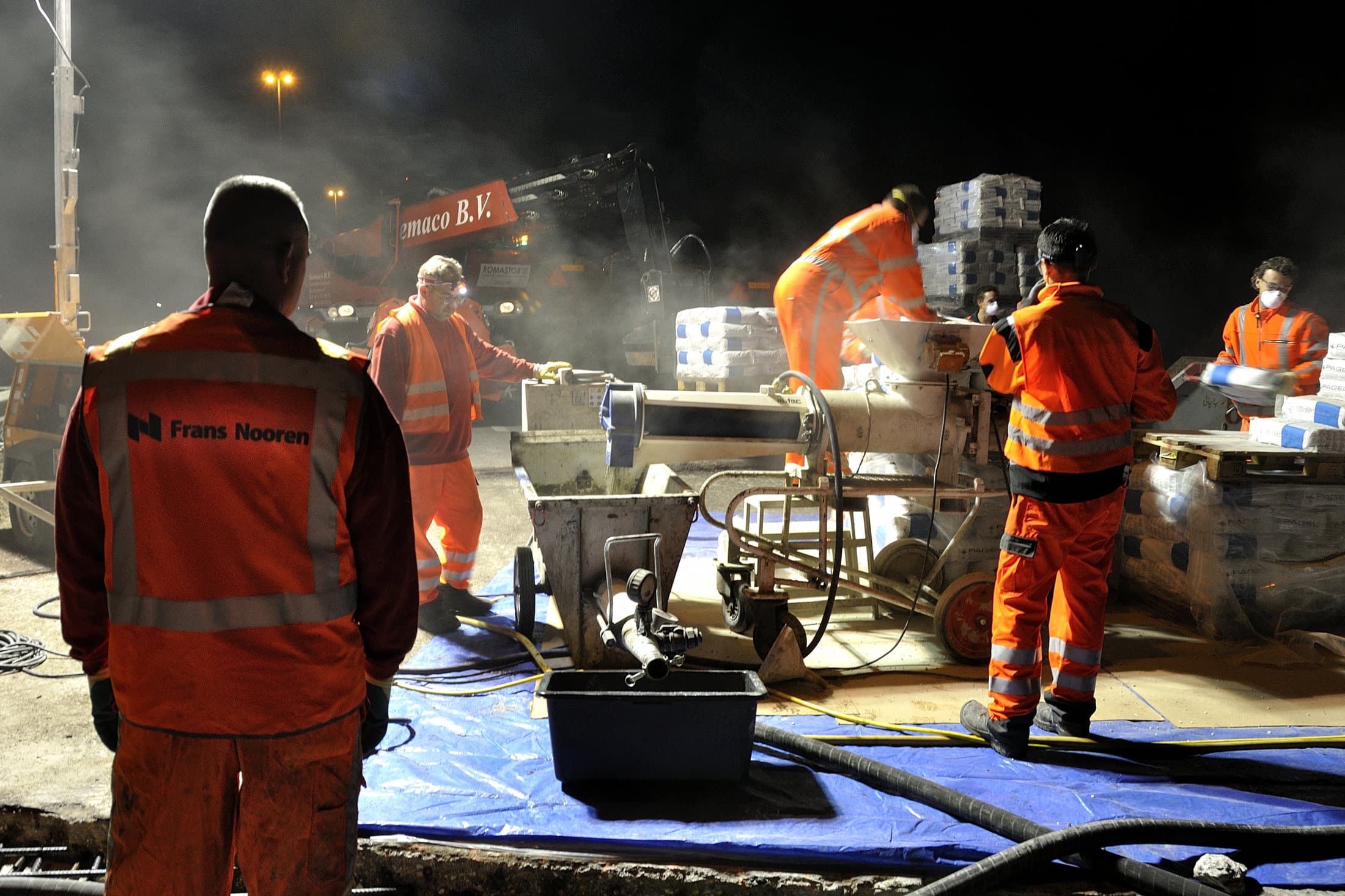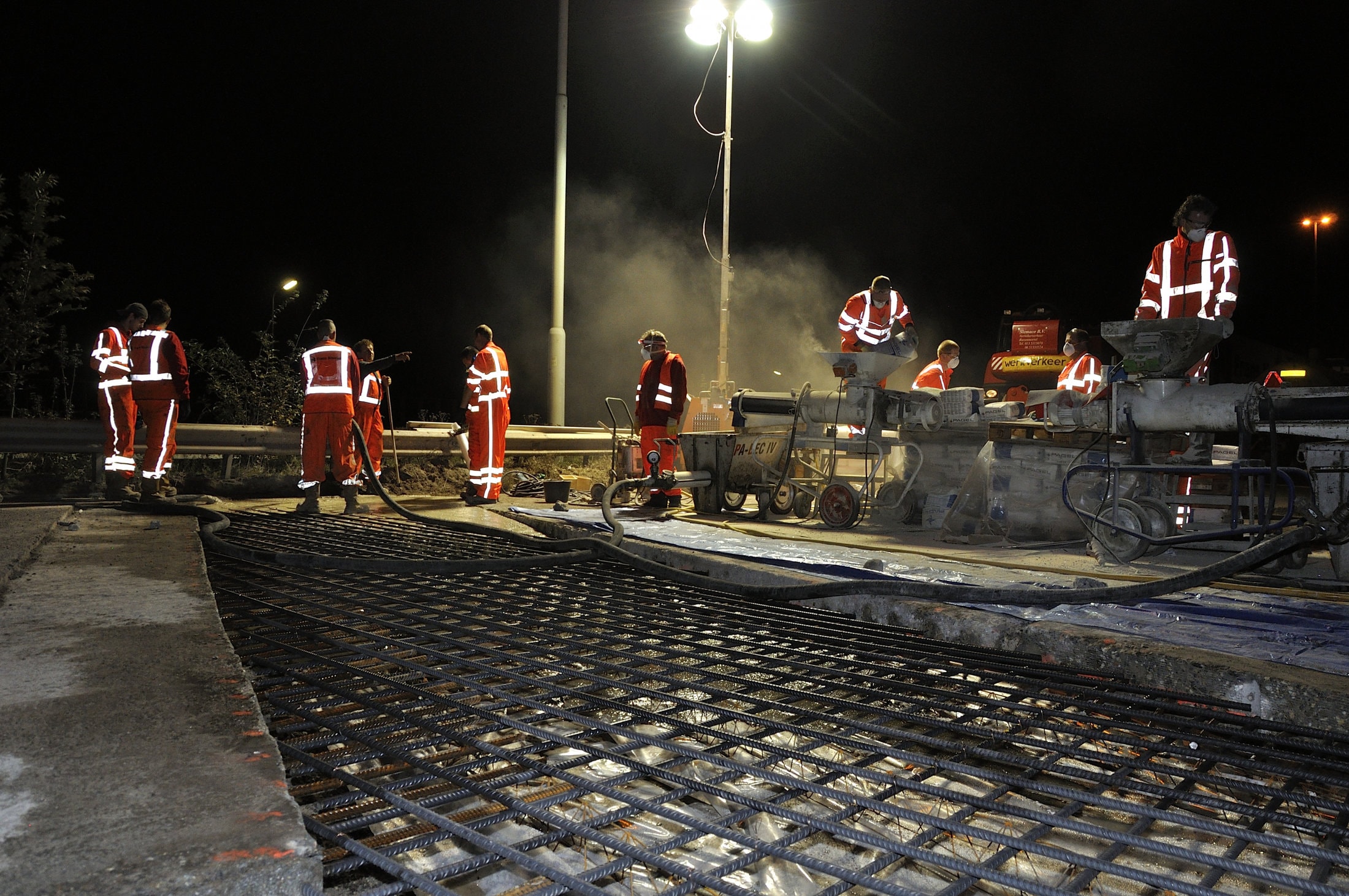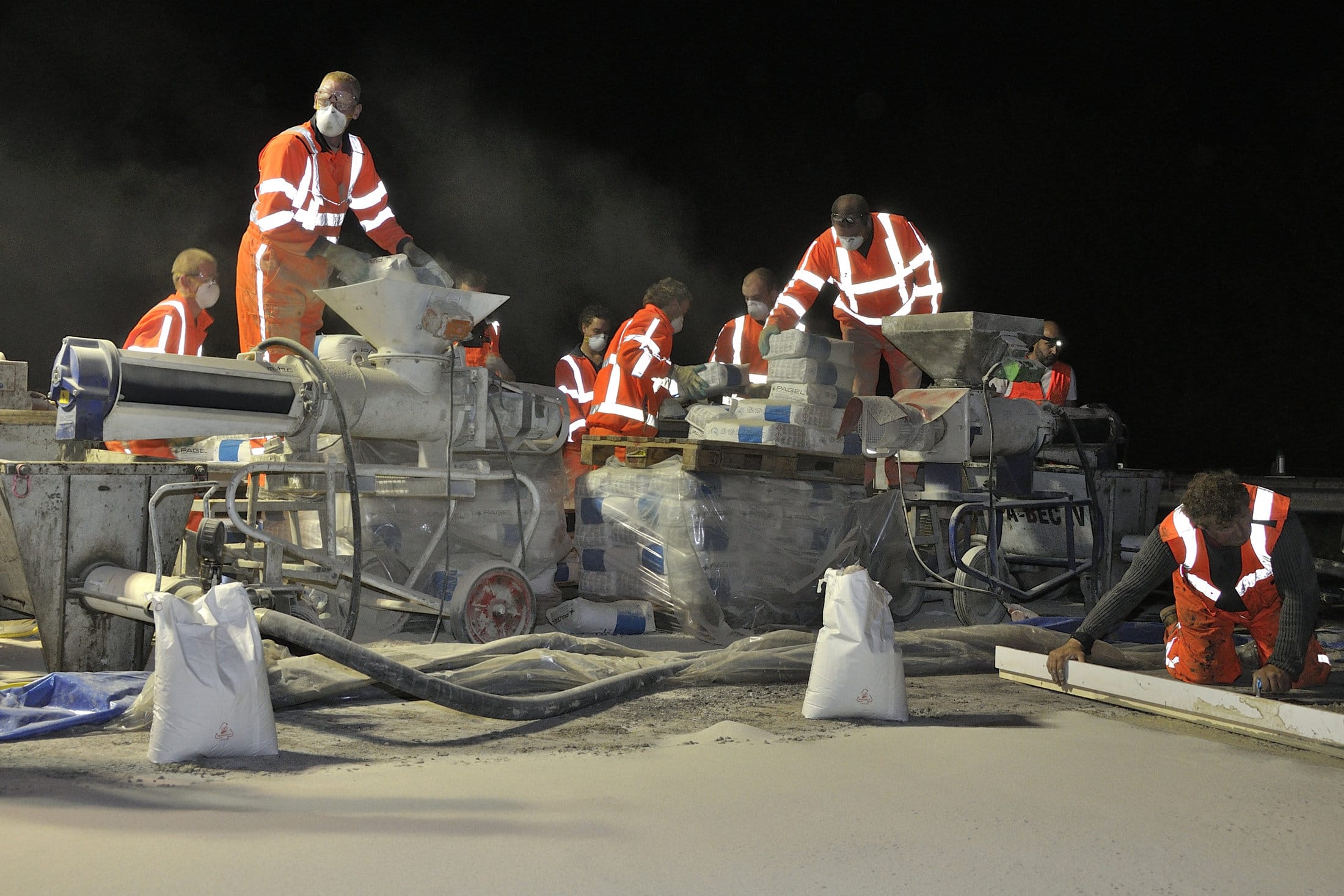SealteQ demonstrated a remarkable feat by completing a unique concrete repair project on the Diezebrug A59 bridge in Den Bosch. According to supplier Verwaard, this is a first in Dutch road construction. Manufacturing and processing 46 tons of concrete mortar on-site in one night is no easy task.
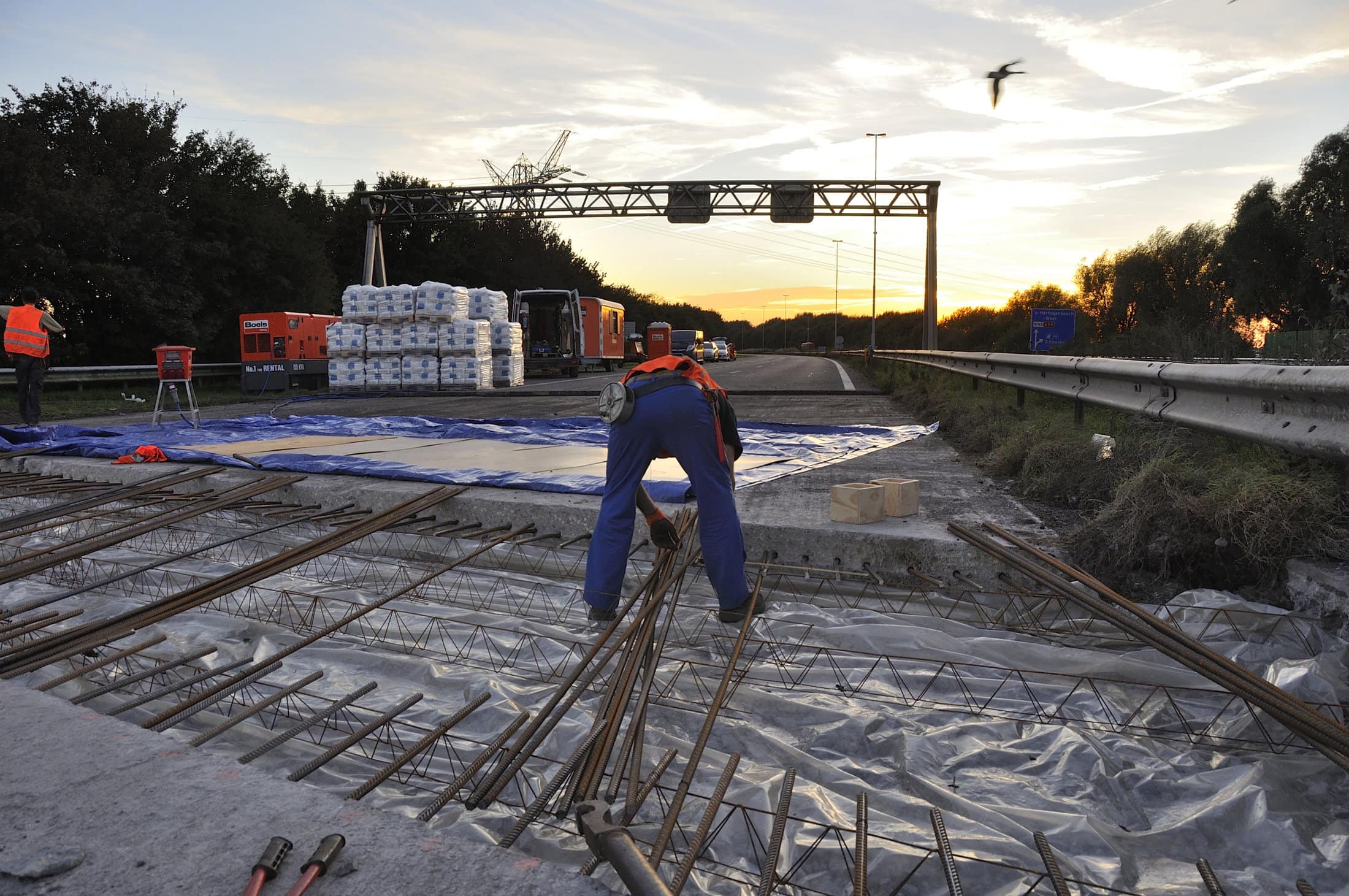
Unique concrete repair project at Diezer Bridge A59
Repair of cracked thrust plates
According to the supplier, the mortar experienced its premiere in Den Bosch. SealteQ assisted Rijkswaterstaat and main contractor Boskalis in repairing the cracked thrust plates of the Diezebrug on the A59. The old cracked concrete slabs were removed, new reinforcement glued in, new concrete poured, and neatly finished.
Traditional Pouring Was not an Option
The concrete plants were unable to supply a mortar that met the requirements, making traditional pouring of the floors not an option. Within four hours, the mortar had to have a strength of thirty newtons per square millimeter. Cracking due to shrinkage stresses could result from such rapid curing.
Solution: Self-Compacting Cast Mortar V2a/160
The solution was found in the self-compacting cast mortar V2A/160, which has a nominal grain size of 16 millimeters and a water-cement ratio of 0.3. Special added steel fibers absorbed the shrinkage.
Organized Process Ensured Rapid Asphalting
In a tightly organized process, the concrete was poured continuously in one night at the two locations with over twenty people. All the machines required for this were present in duplicate at the location. This was done to avoid the risk of downtime. During the pouring, a pallet with a ton of grout was used every three minutes. The poured sections could be asphalted within a few hours.
Specialties
Related markets
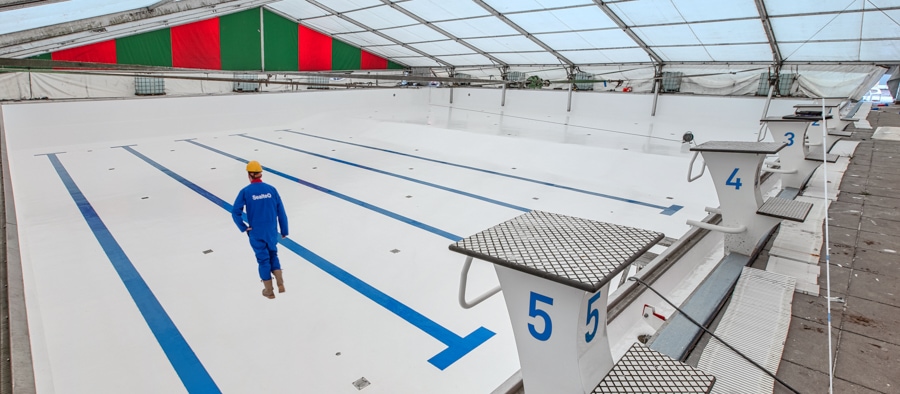
View the next project
Pool coating Harderwijk
SealteQ was commissioned by the Municipality of Harderwijk to carry out maintenance work in the outdoor pool. The assignment, which initially only consisted of partially replacing the polyurea underlayer and recoating the competition pool, was significantly expanded during the work.


